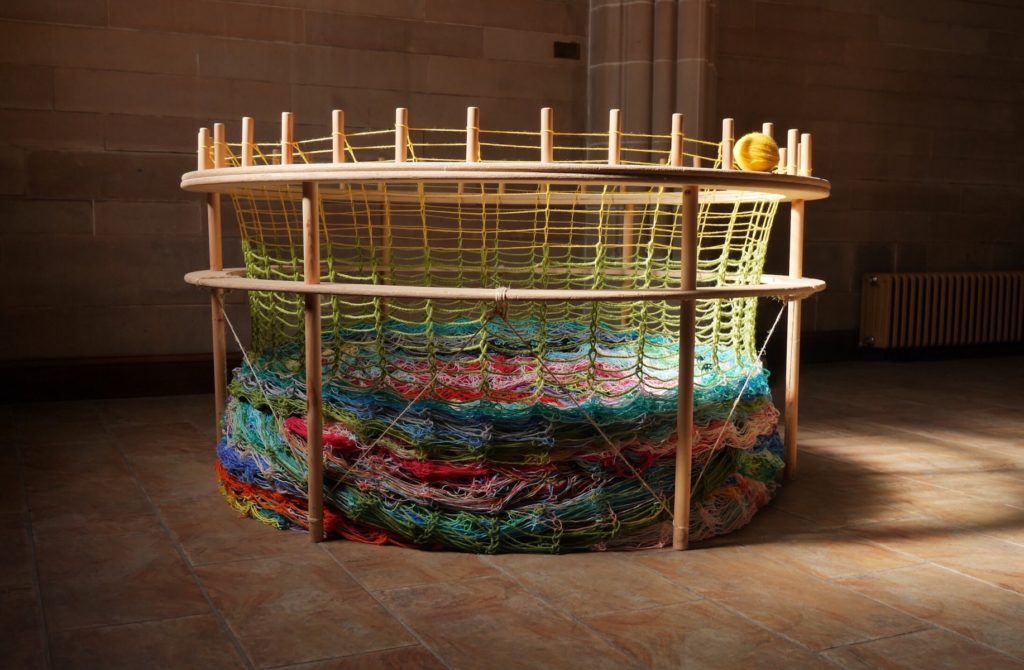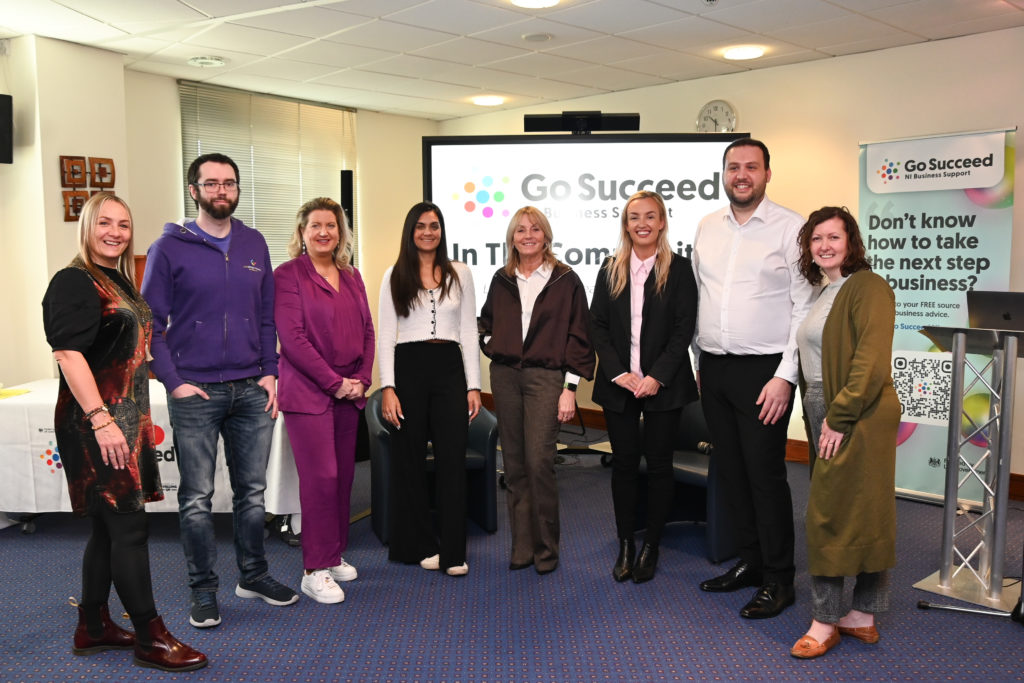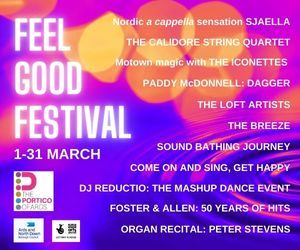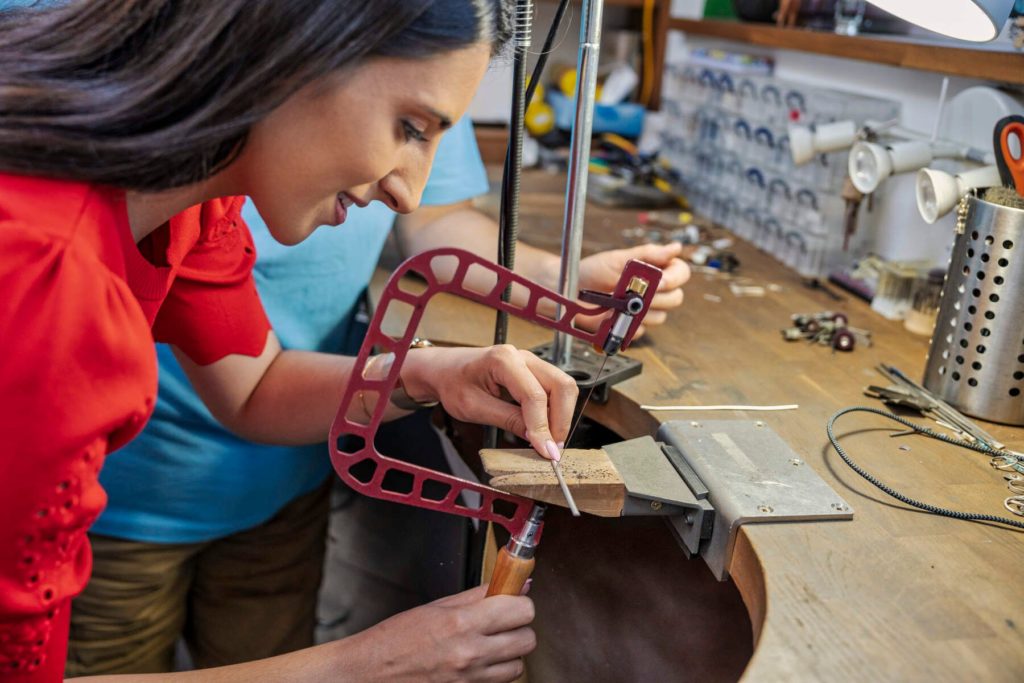
The 4 Corners Festival is returning in 2025 for its 13th year, with a packed lineup of inspiring and thought-provoking talks, discussions, and workshops that promise to engage and challenge attendees. With the theme Home? as its focus, the festival runs from 31 January to 9 February across Belfast, offering a diverse programme designed to spark meaningful conversations.
From exploring the theology of homelessness to uncovering the history of Belfast’s streets, this year’s festival will push the boundaries of dialogue, reflection, and understanding.
Here are six thought-provoking talks taking place during the festival in 2025.
- Caring for Our Earthly Home
Sunday 2 February 2025 at 7PM
Jennymount Methodist Church, 222 North Queen Street
Dr Lorna Gold, Chair of the Laudato Si’ Movement, delves into our shared responsibility to care for the Earth in this compelling event. Drawing on her book Climate Generation – Awakening to Our Children’s Future, Dr Gold explores how faith and action can address the threats of climate change.
Attendees will be challenged and inspired to consider how connections between humanity and the planet can create a more sustainable future. The event also features a musical performance by Cork songwriter Clare Sands, whose innovative style reimagines traditional music.
- Naming Belfast: Learning About Street Names in the Four Corners of Belfast
Monday 3 February 2025 at 7:30PM
The Duncairn, Duncairn Avenue
Take a journey through Belfast’s history with Dr Paul Tempan, Fr Martin Magill, Linda Ervine, and singer-songwriter Brian Houston. This enlightening discussion uncovers the stories behind the city’s street names, exploring how layers of conquest, empire, and cultural shifts have shaped its identity.
Expect a deep dive into the rich tapestry of Belfast’s heritage, brought to life through music, conversation, and fascinating insights.
- Home in a Time of Homelessness
Tuesday 4 February 2025 at 7:30PM
St Comgall’s, Divis Street
Homelessness takes many forms, and this powerful talk by Siobhán Garrigan, Loyola Professor of Theology at Trinity College Dublin, challenges modern theology’s understanding of ‘home’. Siobhán explores the intersection of theology, consumerism, and nationalism, presenting a revolutionary idea of home as ‘participating instead of possessing.’
The event features music by Caroline Orr, Norman McKinley, and Peter Greer, creating an atmosphere of reflection and hope.
- Can We Bring Reconciliation Home?
Thursday 6 February 2025 at 7:30 PM
St Mary’s College, 191 Falls Road
How far has Northern Ireland progressed on the road to reconciliation? This panel discussion, hosted by Will Leitch, brings together speakers including Davy Adams, Nicola Brady, Monica McWilliams, and Spike Murray to examine the challenges and opportunities for peacebuilding.
The event also features a dramatic performance based on Psalm 85, offering a creative prelude to a vital and timely conversation.
- In Conversation About Home with Anthony Toner and Andrea Montgomery
Friday 7 February 2025 at 7:30 PM
Fitzroy Presbyterian Church, 77 University Street
Join songwriter Anthony Toner and playwright Andrea Montgomery for a captivating conversation about how the concept of home shapes their creative work. Anthony reflects on his Coleraine childhood and East Belfast roots through his music, while Andrea shares stories from her global career, spanning four continents.
Hosted by Steve Stockman, this event offers a unique blend of music, art, and storytelling.
- I’ll Call You Home
Sunday 9 February 2025 at 7PM
St Colmcille’s Church, 191a Upper Newtownards Road
The festival’s closing event features a reflection on the creativity and community fostered by the Peacemakers project. Rev. Neil Craigan will bring together the themes of the festival, culminating in a stirring performance of I’ll Be Your Home by Dana Masters.
The evening concludes with Andrew Masters leading attendees out of the festival, inspired to make Belfast a home for all.
All events at the 4 Corners Festival are free, but booking is essential. For full programme details and to secure your place, visit 4cornersfestival.com.
 A warm welcome awaits you at this magnificent 5* Country House nestled in the rolling County Down countryside near the historic village of Scarva. This peaceful Country Retreat mixes old school charm with all the luxuries of the modern world. Through all of 2025, enjoy their stay three nights and get the fourth night free offer where you can relax, unwind and to be looked after by their very attentive staff. Super King rooms starting from £245 per night, including breakfast. Offer valid subject to availability. Call them for more information 028 3883 2752.
A warm welcome awaits you at this magnificent 5* Country House nestled in the rolling County Down countryside near the historic village of Scarva. This peaceful Country Retreat mixes old school charm with all the luxuries of the modern world. Through all of 2025, enjoy their stay three nights and get the fourth night free offer where you can relax, unwind and to be looked after by their very attentive staff. Super King rooms starting from £245 per night, including breakfast. Offer valid subject to availability. Call them for more information 028 3883 2752. Offers are correct at the time of publication and are subject to availability and change without notice. Terms and Conditions apply to each offer and can be viewed on the individual provider’s websites. Tourism NI acts as a promoter of third-party offers and accepts no responsibility for any changes, withdrawals, or inaccuracies made by providers.
Offers are correct at the time of publication and are subject to availability and change without notice. Terms and Conditions apply to each offer and can be viewed on the individual provider’s websites. Tourism NI acts as a promoter of third-party offers and accepts no responsibility for any changes, withdrawals, or inaccuracies made by providers. 

 A recent poll of 5,000 families sees parents increasingly seek meaningful educational experiences for their children during holidays, short-trips and days out. Northern Ireland is bursting with giant experiences to ignite the imagination of young minds in fun and entertaining ways.
A recent poll of 5,000 families sees parents increasingly seek meaningful educational experiences for their children during holidays, short-trips and days out. Northern Ireland is bursting with giant experiences to ignite the imagination of young minds in fun and entertaining ways. While the much-anticipated Deadly Dinner at Walled City Brewery has already sold out, there are still plenty of opportunities to indulge your inner foodie. Whether you’re craving fresh seafood, artisan cheese, or a one-of-a-kind culinary tour, Love LegenDerry Food Month has something for everyone.
While the much-anticipated Deadly Dinner at Walled City Brewery has already sold out, there are still plenty of opportunities to indulge your inner foodie. Whether you’re craving fresh seafood, artisan cheese, or a one-of-a-kind culinary tour, Love LegenDerry Food Month has something for everyone.

 The festival gathers a diverse mix of artists, performers and visitors, fostering an inclusive environment that celebrates community, creativity and the joy of coming together. From choral, classical, folk, electronic, organ, rock and pop music as well as comedy, the Feel Good Festival, against the backdrop of Portico’s stunning architecture, will immerse attendees in a celebration of the senses.
The festival gathers a diverse mix of artists, performers and visitors, fostering an inclusive environment that celebrates community, creativity and the joy of coming together. From choral, classical, folk, electronic, organ, rock and pop music as well as comedy, the Feel Good Festival, against the backdrop of Portico’s stunning architecture, will immerse attendees in a celebration of the senses.
 The festival, celebrating John Steinbeck’s notable connection to Limavady, begins with one of Northern Ireland’s finest interviewers, Mark Carruthers, in conversation with award-winning journalist and author Fergal Keane on Friday 7th February. Tickets cost £12 for what is sure to be an insightful and poignant event.
The festival, celebrating John Steinbeck’s notable connection to Limavady, begins with one of Northern Ireland’s finest interviewers, Mark Carruthers, in conversation with award-winning journalist and author Fergal Keane on Friday 7th February. Tickets cost £12 for what is sure to be an insightful and poignant event.